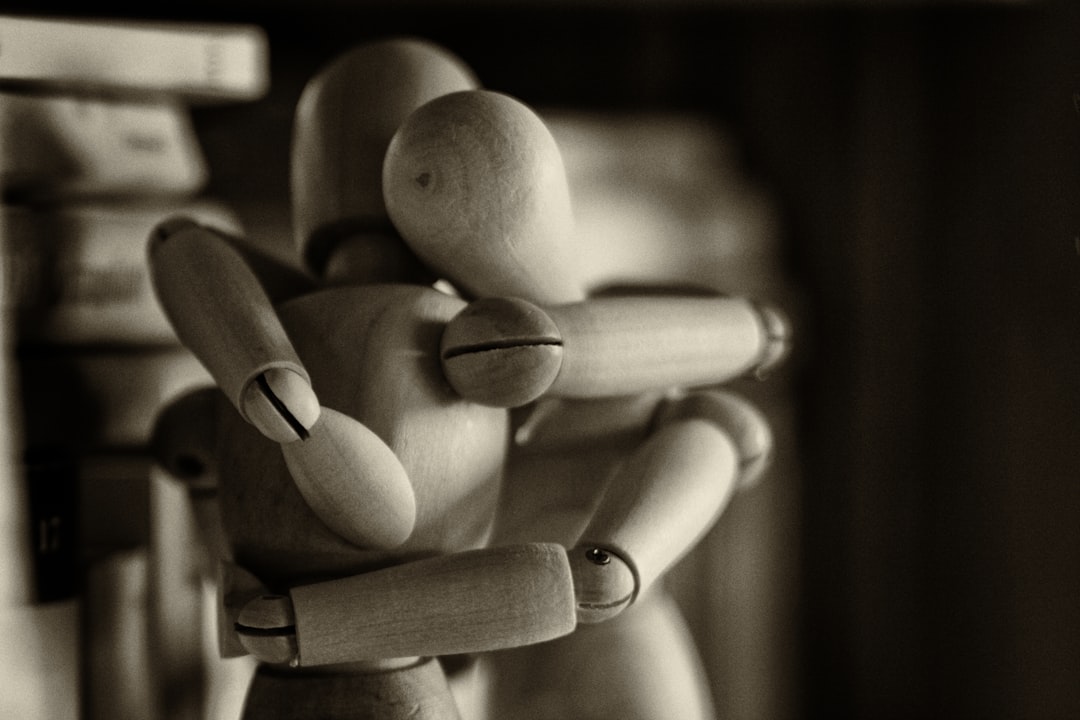
Navigating Through Childhood Trauma in Marriage
July 16, 2020

Childhood Trauma plays a significant role in how we navigate through marriage and intimacy. Unresolved trauma and triggers can have detrimental impacts on how we give and receive love. Individuals who have addressed their trauma through therapy and counseling will have an easier time identifying when and how their past is impacting their marriage. But for those who have yet to talk about these painful memories it can be difficult to identify when and how past memories are impacting current relationships.
As someone who has struggled, and continues to power through my own childhood traumas I understand first hand how difficult and draining this can be. Not only does childhood trauma hold us back from growing as an individual , but it has the potential to negatively impact our marriage. The idea of our past creeping into our marriage can feel paralyzing, but it doesn’t have to be that way.


Looking for your soulmate?
You won’t find your soulmate on this blog post but you might find them on Muzz - the world’s biggest Muslim dating and marriage app.
Making room to talk about childhood trauma, triggers, and painful memories in marriage can help break barriers and build trust. Our behaviors, and how we cope are often linked to our memories. Talking things through with a loved one can help navigate avenues of healing. It creates space for growth and intimacy on a level that is beyond words and touch. The benefits of talking about childhood trauma with our spouses is remarkable – but the question still remains, how do we talk about these things? Where exactly do we start from?

In all honesty it’s not a simple answer. Everyone’s trauma and experiences are unique therefore the style and method in which we talk about our trauma will be unique. In the following few steps I would like to highlight methods that I have used in my own personal relationship over the years.
Alhamdulillah my husband and I are at a point in our marriage where we know talking about our pain makes it feel less burdensome. However getting to this point was not a one process step, nor was it simple and pain free. There is a lot of internal and external work that both partners must be willing to partake in to make healing possible. Our relationship has benefited immensely from implementing these steps and I hope it will benefit others as well.
Disclaimer : I am not a relationship expert, nor is my marriage perfect. I have been married for almost 7 years and I still struggle to talk about certain memories. I am learning new things about myself and my husband every day. Like all marriages my husband and I have many things to work and improve as a couple. The following steps are only a handful of things we have tried, and found many benefits from.
Be Mindful of Timing.
When you decide you are ready to let your spouse know more about some of your painful childhood memories it is important to be mindful of timing. As a couple my husband and I talk about these things on days where the house is quiet, and we’re not distracted by work or chores. The blissful moment before bed when we’re comfortably wrapped in eachothers arms.
During this time our guards are down, and we’re already in a position that is protective and reassuring. Long afternoon walks, and time outdoors also presents a good opportunity to bring up difficult topics and issues. Post-Maghrib conversations while on the prayer rug is also a great time to get things off your shoulder. After a long day praying together in the comfort of our home is nurturing to the soul and body.

Express Your Needs.
Assuming that your spouse will automatically know what you need when talking about your trauma is not fair on you or your partner. Knowing what to do when someone has shared such heavy information does not come naturally and can be difficult to identify. If your partner seems like they are confused about how they can comfort you then go ahead and just tell them. Use simple statements to identify what you need to feel safe and cared for. Here are some examples :
“I feel really triggered right now, please hug me.”
“I feel lonely and really need you to hold my hand.”
“I feel overwhelmed please help me calm down”.
Remember when you share your pain it not only unburdens you, but becomes something that you and your loved one now share. So be mindful of how you both can care for one another after a heavy conversation. I suggest a cup of herbal tea, chai, or hot chocolate.

Identify Triggers.
Certain words, actions and/or behaviours may trigger you even if it’s not at all related to your trauma.It is vital that you let your spouse know about these triggers as they come up. Explaining to your spouse when and how certain things trigger you can prevent unnecessary arguments and pain. The use of certain words and statements in arguments may inflict more pain than others because they remind you of something painful.
When things are calm and you are no longer angry sit down and talk to your spouse. Explain how they make you feel and why you need them to be mindful. Try to communicate specifics if possible and maintain that it all comes from a place of love . In a healthy marital relationship your spouse will listen. He/she will try their very best to avoid using words, statements and/or actions that trigger you. In a healthy relationship your spouse will listen and acknowledge that even during a heated argument using triggers to hurt you is not okay and on some level a form of abuse.

I emphasise ‘healthy marriage’ when I say this because in a marriage where there is abuse and domestic violence addressing childhood trauma and painful memories is not possible. There is an imbalance of power and lack of respect for the spouse that is being mentally, emotionally, and/or spiritually abused. In such a relationship there is no space for childhood traumas to be resolved, or even talked about because the relationship itself is traumatic. In an unhealthy relationship childhood traumas will be brushed off as nothing, and labeled as over dramatization of matters. A safe space to talk about the trauma will be non-existent and there will be disregard for healing.
For the purpose of this piece I am only addressing childhood trauma in healthy marital relationships. In later pieces I will try my best to address healing whilst in an unhealthy marriage, and how one can create a safe space in such circumstances.
Trust in the Process.
Just as opening up about your struggle takes time, seeing its benefits takes time as well. There will be a sense of comfort once you’ve gotten things off your plate, but the strength in your relationship will shine through in unexpected moments. You may not notice them at first, but over the course of time you’ll see that you talking about your trauma has pushed your relationship to the next level.
There’s a sense of security and strength in sharing the burden. One spouse talking about their hurt lets the other spouse know that their love is needed and valued. It lets them know that there is room to talk about their pain as well. When I advocated for myself by telling my husband about some of my painful experiences it let him know that he too could confide in me some of his pain. When we talk about our aching it’s very likely that our spouse will remember his/her own aching or in some way relate to our struggle.

Be open to hearing their trauma. Remember your healing together to be better spouses for each other. Do not at any moment assume that your trauma is greater than or lesser than your spouse. Trauma is trauma and severity does not determine validation. Validate your own experiences and that of our spouses. Again, VALIDATE all painful experiences.
PRAY! PRAY ! PRAY!
I cannot emphasise how important it is to pray throughout this process. Allah has made it possible for us to survive through our past, and he alone can guide us through this process of healing. No matter how fulfilling our marriage and worldly relationships are – our most valuable relationship is with Allah Azzawajal. Whether we will reach a place in our marital life that is fulfilling is dependent on the will of Allah , and in our dedication to see that happen. May Allah grant us with immense love and happiness in our marriage. May we be spouses, and be granted spouses that bring us closer to Allah.

If I have written anything beneficial then it was only through the will of Allah, and if I have written anything wrong, or offensive then it was from my own human error and not at all my intention to cause any hurt.
Jabin Ahmed is an inspirational writer, artist, activist and creator. She has a Bachelors in Sociology from Russel Sage College, and a Masters in Public Health from the University of New England. Currently she is working towards her Masters in Islamic Studies and pursuing her passion for writing.
Jabin uses her life experiences as a Muslim, Brown, Second Gen. American woman to create change through various mediums and movements. Her work is themed around identity, religion, love, loss, mental health, trauma, healing, self-care, femininity, social justice, education, and empowerment. Jabin hopes to create change in her community and in the world through compassion and dedication.
Read more of Jabins’ work at: https://jabeanie.wordpress.com/
Resources :
Writer, Staff. “Lifting Barriers to Intimacy: Overcoming Childhood Trauma In Partnership.” NCCT, NCCT, 24 Apr. 2018, www.northamptoncouplestherapy.com/blog/lifting-barriers-to-intimacy.
Martinez, Contributed by Kristin. “How Trauma Can Undermine a Marriage (and How to Fix It).” GoodTherapy.org Therapy Blog, 18 May 2016, www.goodtherapy.org/blog/how-trauma-can-undermine-marriage-how-to-fix-it-0523164.
Kvarnstrom, Elisabet. “How to Help a Partner With Childhood Trauma Through Their Recovery Journey.” Bridges to Recovery, Bridges to Recovery, 16 July 2019, www.bridgestorecovery.com/blog/help-partner-childhood-trauma-recovery-journey/.

